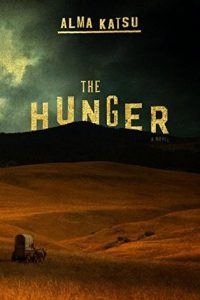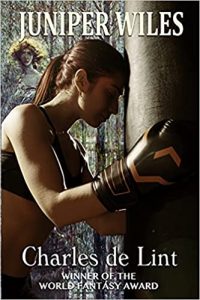Ian Mond Reviews The Lesson by Cadwell Turnbull

The Lesson, Cadwell Turnbull (Blackstone Publishing 978-1538584644, $26.99, 290pp, hc) June 2019.
Cadwell Turnbull’s debut, The Lesson, has been billed as one of the first science fiction novels set in the Virgin Islands. While this is something to cheer about, what’s more important, especially in the context of the #ownvoices movement, is that Turnbull was raised in the Caribbean in a family that lived there for generations. This slow but gradual addition to the field of diverse writers whose fiction is influenced by their cultural background has not only led to a more authentic depiction of places other than mainland America and the United Kingdom, it’s also revitalised the genre’s creaky old tropes, such as the alien invasion/first contact narrative. Take recent examples like Nnedi Okorafor’s Lagoon, which subverts the typical US-centric alien invasion blockbuster by drawing on Nigeria’s rich mythology, or Tade Thompson’s Rosewater and its sequel (also set in Nigeria) that explores an alien visitation through the lens of identity and political sovereignty. With The Lesson, Turnbull teases out an aspect of the trope that’s assumed but not always interrogated – alien invasion as a metaphor for colonialism.
The Lesson doesn’t begin with the arrival of the aliens or, as we’ve come to expect, in media res where they’ve destroyed all opposition and taken control of the planet. Instead, Turnbull takes the time to introduce us to the community of Charlotte Amalie, on the island of St Thomas, through the anodyne lives of its inhabitants. There’s the sexual tension between teenage friends, Derrick and Patrice; the mid-life crisis of Patrice’s father, Jackson, sparked by a series of flirtatious text messages from an ex-student; and the growing feelings Patrice’s mother, Aubrey, has for her co-worker Alice. It’s all so ordinary, familiar, and human that it’s a genuine shock when the aliens make their stunning entrance: ‘‘A giant seashell, Patrice thought. A seashell in the sky, not obeying gravity, humming in her bones.’’ The narrative then skips five years, with the new arrivals, the Ynaa, who disguise their true form behind a human façade, now embedded within the community of Charlotte Amalie. While they don’t divulge their reason for coming to Earth (it’s the overarching mystery of the novel), they placate world governments with shiny new technology and the assurance that their stay will be temporary. In the period since their arrival, Patrice’s parents have divorced – Aubrey living with Alice, Jackson living alone, planning but never starting a book about the Ynaa and his theory that their Ambassador, Mera, has been living on the planet for centuries. Patrice has left the islands to study in the States, reluctant to return to a place that no longer feels like home. Her once close friend Derrick is employed as Mera’s factotum, answering the Ambassador’s many emails, and dealing with complaints from angry residents. This anger stems from the Ynaa’s tendency to lash out violently when confronted, maiming and often killing any human who gets in their way.
Jackson’s suspicion about Mera is correct: she has lived on the planet collecting samples and data for a very long time. This provides Turnbull with the opportunity to explore the Virgin Island’s brutal history of slavery through the eyes of an outsider. Mera witnesses the Danish and British invasion of the islands and the forced relocation of the population across the archipelago to harvest commodities like sugarcane. For someone ignorant of the history – just like I was last month with the Umkhonto we Sizwe as depicted in Masande Ntshanga’s Triangulum – I found these scenes to be as powerful and confronting as they were educational. When Turnbull shifts the narrative back to the present day, he avoids equating the Ynaa with the horrendous and lasting damage caused by European colonisation. That said, there are clear parallels with colonialism, such as the Ynaa’s superior attitude and lack of care toward the Islanders, where ripping a man’s arm off is no different to a human squashing a bug, and the people of Charlotte Amalie rioting against their occupiers when it becomes clear there will be no justice for those harmed or murdered.
As the novel progresses, Turnbull introduces other voices, giving The Lesson a polyphonic quality. This includes Derrick’s teenage sister Lee whose friends have been directly impacted by the Ynaa’s anger management issues; Derrick and Lee’s God-abiding grandmother, Henrietta, who knows first hand that Mera didn’t arrive with the other Ynaa; and Shawn, who seeks revenge for the brutal death of his brother at the hands of the invaders. When blended together with Derrick’s unflinching loyalty toward Mera, these added perspectives provide a layered and complex portrait of how people experience and rebel against occupation. It does though have the drawback that characters I’d invested in, like Patrice and Jackson, are given less ‘‘screen-time’’ and thus don’t get the arc they deserve.
The Lesson is everything I adore about a debut, a bold new voice that applies a fresh coat of paint to an old idea and does so with a sense of daring, compassion, and intelligence.
This review and more like it in the July 2019 issue of Locus.
While you are here, please take a moment to support Locus with a one-time or recurring donation. We rely on reader donations to keep the magazine and site going, and would like to keep the site paywall free, but WE NEED YOUR FINANCIAL SUPPORT to continue quality coverage of the science fiction and fantasy field.








